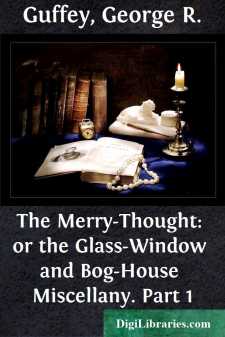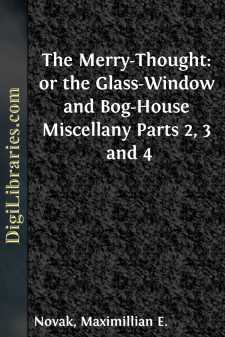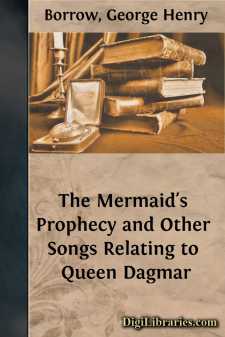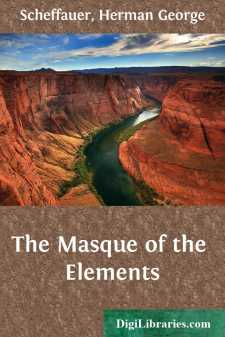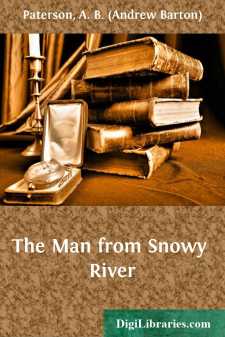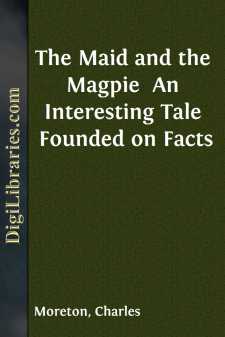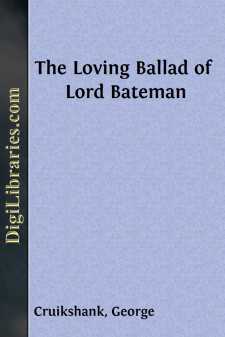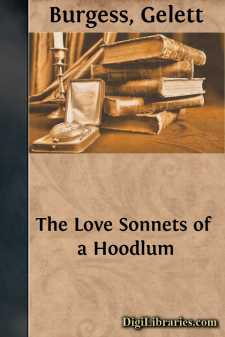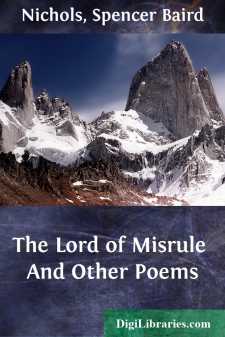Poetry Books
Sort by:
by:
George R. Guffey
INTRODUCTION For modern readers, one of the most intriguing scenes in Daniel Defoe's Moll Flanders (1722) occurs during the courtship of Moll by the man who is to become her third husband. Aware that the eligible men of her day have little interest in prospective wives with small or nonexistent fortunes, Moll slyly devises a plan to keep her relative poverty a secret from the charming and (as she...
more...
INTRODUCTION In an address to the American Society for Eighteenth Century Studies at the 1983 annual meeting, Roger Lonsdale suggested that our knowledge of eighteenth-century poetry has depended heavily on what our anthologies have decided to print. For the most part modern anthologies have, in turn, drawn on collections put together at the end of the eighteenth century and the beginning of the next,...
more...
I. KING VALDEMAR’S WOOING. Valdemar King and Sir Strange bold At table sat one day,So many a word ’twixt them there passed In amicable way. “Hear Strange, hear! thou for a time Thy native land must leave;Thou shalt away to Bohemia far My young bride to receive.” Then answered Strange Ebbesen, To answer he was not slow:“Who shall attend me of thy liegemen, If I to...
more...
ARGUMENT In this Threnody and Birth-song of the Elements, written in California some five years ago, I have striven to capture and present some of the chief-factors and phases of the eternal drama of Life and Death in the Universe. These powers, elements and agents I have endowed with human attributes and human emotions as though it were Man himself who uttered himself through them. The actors in this...
more...
Contents with First Lines: PreludeI have gathered these stories afar, The Man from Snowy RiverThere was movement at the station, for the word had passed around Old Pardon, the Son of ReprieveYou never heard tell of the story? Clancy of the OverflowI had written him a letter which I had, for want of better Conroy's GapThis was the way of it, don't you know — Our New HorseThe boys had come...
more...
by:
Charles Moreton
1At Palaiseau, there liv’d a maid,In form and features mild;The stings of conscience never prey’d,On this devoted child.She serv’d a wealthy farmer there,An honest soul was he;Her comforts were his only care,And all he wish’d to see. 3His wife was of another mould,And prematurely smart;Hasty, and rash, with that a scold,Yet still a feeling heart. One summers eve’, her labor done,She sat in...
more...
by:
Richard Lovelace
INTRODUCTION. There is scarcely an UN-DRAMATIC writer of the Seventeenth Century, whose poems exhibit so many and such gross corruptions as those of the author of LUCASTA. In the present edition, which is the first attempt to present the productions of a celebrated and elegant poet to the admirers of this class of literature in a readable shape, both the text and the pointing have been amended...
more...
Warning to the Public THE LOVING BALLAD OF LORD BATEMAN. In some collection of old English Ballads there is an ancient ditty which I am told bears some remote and distant resemblance to the following Epic Poem. I beg to quote the emphatic language of my estimable friend (if he will allow me to call him so), the Black Bear in Piccadilly, and to assure all to whom these presents may come, that "I am...
more...
by:
Gelett Burgess
Introduction "Tell me, ye muses, what hath former agesNow left succeeding times to play upon,And what remains unthought on by those sagesWhere a new muse may try her pinion?" So Complained Phineas Fletcher in his Purple Island as long ago as 1633. Three centuries have brought to the development of lyric passion no higher form than that of the sonnet cycle. The sonnet has been likened to an...
more...
THE LORD OF MISRULE “On May days the wild heads of the parish would choose a Lord of Misrule, whom they would follow even into the church, though the minister were at prayer or preaching, dancing and swinging their may-boughs about like devils incarnate.”—Old Puritan Writer. A LL on a fresh May morning, I took my love to church, To see if Parson Primrose were safely on his perch. He scarce had...
more...


